- Clone
- 1B1.3a (See other available formats)
- Regulatory Status
- RUO
- Other Names
- IL-10R, Interleukin-10 Receptor
- Isotype
- Rat IgG1, κ
- Ave. Rating
- Submit a Review
- Product Citations
- publications
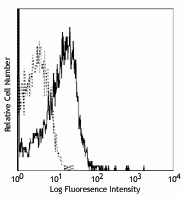
-

C57BL/6 mouse splenocytes stained with 1B1.3a PE
CD210 is a 90-110 kD IL-10 receptor. It is a class II cytokine receptor expressed on thymocytes, T cells, B cells, NK cells, monocytes and macrophages. Ligand binding of CD210 induces Jak1 and Tyk, resulting in STAT1 and STAT3 activation. IL-10 receptor stimulation results in the inhibition of cytokine production and the costimulation of B cell proliferation and differentiation. The only known ligand for this receptor is IL-10.
Product DetailsProduct Details
- Verified Reactivity
- Mouse
- Antibody Type
- Monoclonal
- Host Species
- Rat
- Immunogen
- Soluble mIL-10R-FLAG-His
- Formulation
- 0.2 µm filtered in phosphate-buffered solution, pH 7.2, containing no preservative.
- Endotoxin Level
- Less than 0.01 EU/µg of the protein (< 0.001 ng/µg of the protein) as determined by the LAL test.
- Preparation
- The Ultra-LEAF™ (Low Endotoxin, Azide-Free) antibody was purified by affinity chromatography.
- Concentration
- The antibody is bottled at the concentration indicated on the vial, typically between 2 mg/mL and 3 mg/mL. Older lots may have also been bottled at 1 mg/mL. To obtain lot-specific concentration and expiration, please enter the lot number in our Certificate of Analysis online tool.
- Storage & Handling
- The antibody solution should be stored undiluted between 2°C and 8°C. This Ultra-LEAF™ solution contains no preservative; handle under aseptic conditions.
- Application
-
FC - Quality tested
Block - Reported in the literature, not verified in house - Recommended Usage
-
Each lot of this antibody is quality control tested by immunofluorescent staining with flow cytometric analysis. For flow cytometric staining, the suggested use of this reagent is ≤1.0 µg per million cells in 100 µl volume or 100 µl of whole blood. It is recommended that the reagent be titrated for optimal performance for each application.
- Application Notes
-
Additional reported applications (for the relevant formats) include: in vitro and in vivo blocking of ligand binding1-5. For most successful immunofluorescent staining results, it may be important to maximize signal over background by using a relatively bright fluorochrome-antibody conjugate (Cat. No. 112706) or by using a high sensitivity, three-layer staining technique (e.g., including a biotinylated antibody (Cat. No. 112704) or biotinylated anti-rat IgG (Cat. No. 405402) second step, followed by SAv-PE (Cat. No. 405204)). The LEAF™ purified antibody (Endotoxin < 0.1 EU/µg, Azide-Free, 0.2 µm filtered) is recommended for functional assays. For in vivo studies or highly sensitive assays, we recommend Ultra-LEAF™ purified antibody (Cat. No. 112710) with a lower endotoxin limit than standard LEAF™ purified antibodies (Endotoxin < 0.01 EU/µg).
-
Application References
(PubMed link indicates BioLegend citation) -
- O'Farrell A, et al. 1998. EMBO J. 17:1006. (Block)
- Wang W, et al. 2004. FASEB J. 18:1043. (Block)
- Vieira PL, et al. 2004. J. Immunol. 172:5986. (Block)
- Iwashiro M, et al. 2001. P. Natl. Acad. Sci. USA 98:9226. (Block)
- Vicari AP, et al. 2002. J. Exp. Med. 196:541. (Block)
- Product Citations
-
- RRID
-
AB_11147950 (BioLegend Cat. No. 112714)
AB_11147950 (BioLegend Cat. No. 112712)
AB_11147950 (BioLegend Cat. No. 112713)
AB_11147950 (BioLegend Cat. No. 112709)
AB_11147950 (BioLegend Cat. No. 112710)
AB_11147950 (BioLegend Cat. No. 112711)
Antigen Details
- Structure
- Class II cytokine receptor family, 90-110 kD
- Distribution
-
Thymocytes, T and B cells, NK cells, monocytes, macrophages
- Function
- Inhibits cytokine production, costimulates B cell proliferation and differentiation
- Ligand/Receptor
- IL-10
- Cell Type
- B cells, Macrophages, Monocytes, NK cells, T cells, Thymocytes
- Biology Area
- Immunology
- Molecular Family
- CD Molecules, Cytokine/Chemokine Receptors
- Antigen References
-
1. Ho A, et al. 1993. P. Natl. Acad. Sci. USA 90:11267.
2. Tan JC, et al. 1993. J. Biol. Chem. 268:21053.
3. Niemand C, et al. 2003. J. Immunol. 170:3263.
4. Corinti S, et al. 2001. J. Immunol. 166:4312. - Gene ID
- 16154 View all products for this Gene ID
- Specificity (DOES NOT SHOW ON TDS):
- CD210
- Specificity Alt (DOES NOT SHOW ON TDS):
- CD210
- App Abbreviation (DOES NOT SHOW ON TDS):
- FC,Block
- UniProt
- View information about CD210 on UniProt.org
Related Pages & Pathways
Pages
Related FAQs
- Do you guarantee that your antibodies are totally pathogen free?
-
BioLegend does not test for pathogens in-house aside from the GoInVivo™ product line. However, upon request, this can be tested on a custom basis with an outside, independent laboratory.
- Does BioLegend test each Ultra-LEAF™ antibody by functional assay?
-
No, BioLegend does not test Ultra-LEAF™ antibodies by functional assays unless otherwise indicated. Due to the possible complexities and variations of uses of biofunctional antibodies in different assays and because of the large product portfolio, BioLegend does not currently perform functional assays as a routine QC for the antibodies. However, we do provide references in which the antibodies were used for functional assays and we do perform QC to verify the specificity and quality of the antibody based on our strict specification criteria.
- Does BioLegend test each Ultra-LEAF™ antibody for potential pathogens?
-
No, BioLegend does not test for pathogens in-house unless otherwise indicated. However, we can recommend an outside vendor to perform this testing as needed.
- Have you tested this Ultra-LEAF™ antibody for in vivo or in vitro applications?
-
We don't test our antibodies for in vivo or in vitro applications unless otherwise indicated. Depending on the product, the TDS may describe literature supporting usage of a particular product for bioassay. It may be best to further consult the literature to find clone specific information.
Other Formats
View All CD210 Reagents Request Custom Conjugation| Description | Clone | Applications |
|---|---|---|
| Biotin anti-mouse CD210 (IL-10 R) | 1B1.3a | FC |
| PE anti-mouse CD210 (IL-10 R) | 1B1.3a | FC |
| Purified anti-mouse CD210 (IL-10 R) | 1B1.3a | FC,Block |
| Ultra-LEAF™ Purified anti-mouse CD210 (IL-10 R) | 1B1.3a | FC,Block |
| TotalSeq™-B1032 anti-mouse CD210 (IL-10 R) | 1B1.3a | PG |
| TotalSeq™-C1032 anti-mouse CD210 (IL-10 R) | 1B1.3a | PG |
Customers Also Purchased
Compare Data Across All Formats
This data display is provided for general comparisons between formats.
Your actual data may vary due to variations in samples, target cells, instruments and their settings, staining conditions, and other factors.
If you need assistance with selecting the best format contact our expert technical support team.
-
Biotin anti-mouse CD210 (IL-10 R)
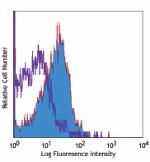
C57BL/6 mouse splenocytes stained with biotinylated 1B1.3a, ... -
PE anti-mouse CD210 (IL-10 R)
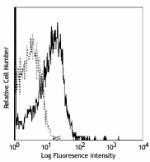
C57BL/6 mouse splenocytes stained with 1B1.3a PE -
Purified anti-mouse CD210 (IL-10 R)

C57BL/6 mouse splenocytes stained with 1B1.3a PE -
Ultra-LEAF™ Purified anti-mouse CD210 (IL-10 R)

C57BL/6 mouse splenocytes stained with 1B1.3a PE -
TotalSeq™-B1032 anti-mouse CD210 (IL-10 R)
-
TotalSeq™-C1032 anti-mouse CD210 (IL-10 R)

 Login / Register
Login / Register 






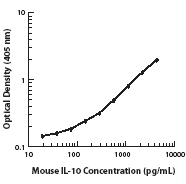
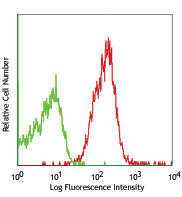




Follow Us